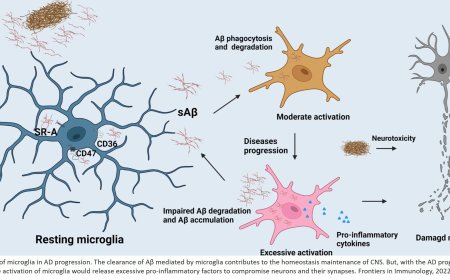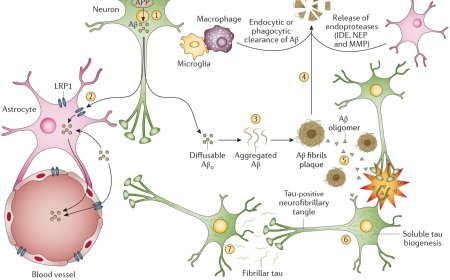C9ORF72 gene in Alzheimer’s disease

The C9ORF72 gene is primarily known for its association with amyotrophic lateral sclerosis (ALS) and frontotemporal dementia (FTD). However, research has also explored its potential link to Alzheimer's disease (AD).
A meta-analysis found that C9ORF72 repeat expansions are positively correlated with the risk of Alzheimer's disease, with an odds ratio of 6.36. This suggests that individuals with C9ORF72 repeat expansions may be at a higher risk of developing AD.
Interestingly, the same meta-analysis found that intermediate repeat copies of the C9ORF72 gene were not associated with an increased risk of AD. This highlights the complexity of the relationship between the C9ORF72 gene and neurodegenerative diseases.
In another publication, C9orf72 deficiency promotes a change in the homeostatic signature in microglia and a transition to an inflammatory state characterized by an enhanced type I IFN signature.
C9orf72-depleted microglia trigger age-dependent neuronal defects, in particular enhanced cortical synaptic pruning, leading to altered learning and memory behaviors in mice.
Interestingly, C9orf72-deficient microglia promote enhanced synapse loss and neuronal deficits in a mouse model of amyloid accumulation while paradoxically improving plaque clearance.
It's essential to note that the current understanding of the C9ORF72 gene's role in Alzheimer's disease is based on a limited number of studies, and further research is needed to confirm these findings.
https://sciencemission.com/C9orf72-Repeats-and-Risk-of-Alzheimer%E2%80%99s-Disease
https://sciencemission.com/C9orf72-deficiency-and-amyloid-accumulation













